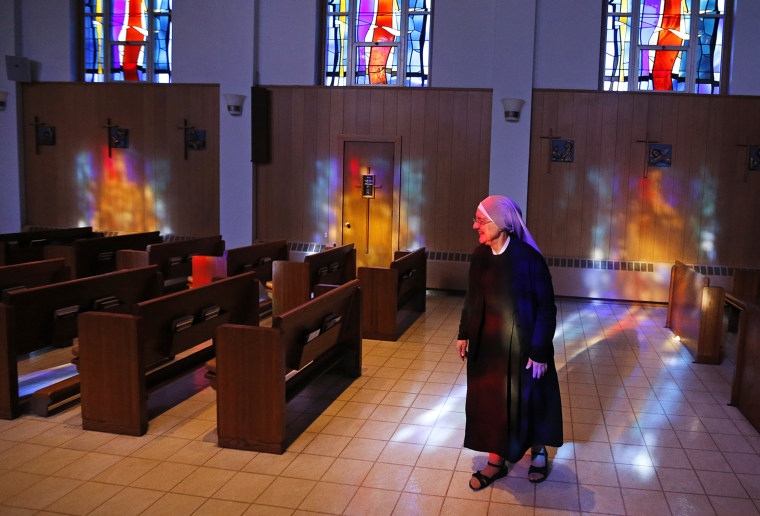The case of the Little Sisters of the Poor against the Obama administration was already impossibly baroque, but it came down to whether signing a form to opt out of required contraceptive coverage violated the religious liberty of the Catholic nursing home. Now, in a one-paragraph answer to the Little Sisters' emergency appeal for a reprieve from the rule, the Supreme Court has made it even weirder.
Instead of signing an opt-out form -- or as their lawyer calls it, "a permission slip for abortion pills" -- the Little Sisters now have to write a letter. "Applicants need not use the form prescribed by the Government and need not send copies to third-party administrators," the Court said in an order issued late Friday. It also made clear that Justice Sonia Sotomayor, who oversees the circuit that had originally denied the Little Sisters an injunction, referred the case to the entire Court, but that they were unready to rule on the merits, as requested by the Little Sisters.
Colorado-based Little Sisters of the Poor Home for the Aged is one of over a dozen religious nonprofits who have sued over an accommodation under the Affordable Care Act's requirement that insurance cover contraception without a co-pay. That compromise allows them to sign a form certifying their objection to contraception and send it to an insurer, who will then provide the contraception coverage directly. The plaintiffs, which include far larger organizations like the University of Notre Dame, say that doesn't go far enough because even signing a form for someone else to get birth control is participating in sin.
While the order effectively extends the temporary stay Sotomayor issued on New Year's Eve, the Justices were reluctant to go any further. "The Court issues this order based on all of the circumstances of the case, and this order should not be construed as an expression of the Court’s views on the merits," the order continues.
In other words, the Court will maintain the status quo until the lower courts have started issuing opinions on the 18 other cases that are already being heard. Unlike the Little Sisters case, many of those cases actually involve people receiving birth control. Because of a surprise loophole that means the government has no enforcement power over their insurer, even if the Little Sisters sign the form they said violated their liberty and send it to their third party administrator, no one will get contraceptive coverage. That doesn't apply to the other plaintiffs against the regulation, which is part of the Affordable Care Act. One of those cases may well end up back before the Court on the merits.
Even though this still involves signing a paper saying they oppose contraception, the fact that it won't be sent to an insurer for now seemed to be enough for the Little Sisters.
“We are delighted that the Supreme Court has issued this order protecting the Little Sisters,” said Mark Rienzi, Senior Counsel for the Becket Fund, in a statement. “The government has lots of ways to deliver contraceptives to people–it doesn’t need to force nuns to participate.”
Planned Parenthood President Cecile Richards shot back against the Court's order, saying it was "not about the merits."
"This is a case about paperwork, not religious liberty," she said in a statement.
